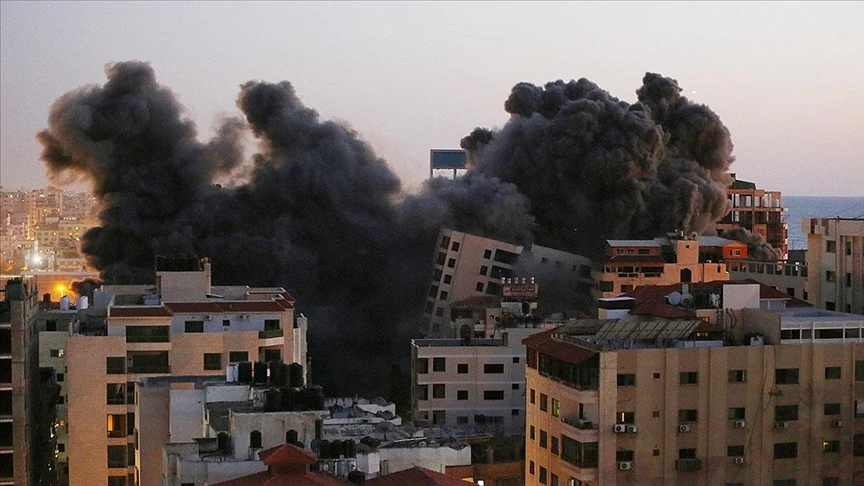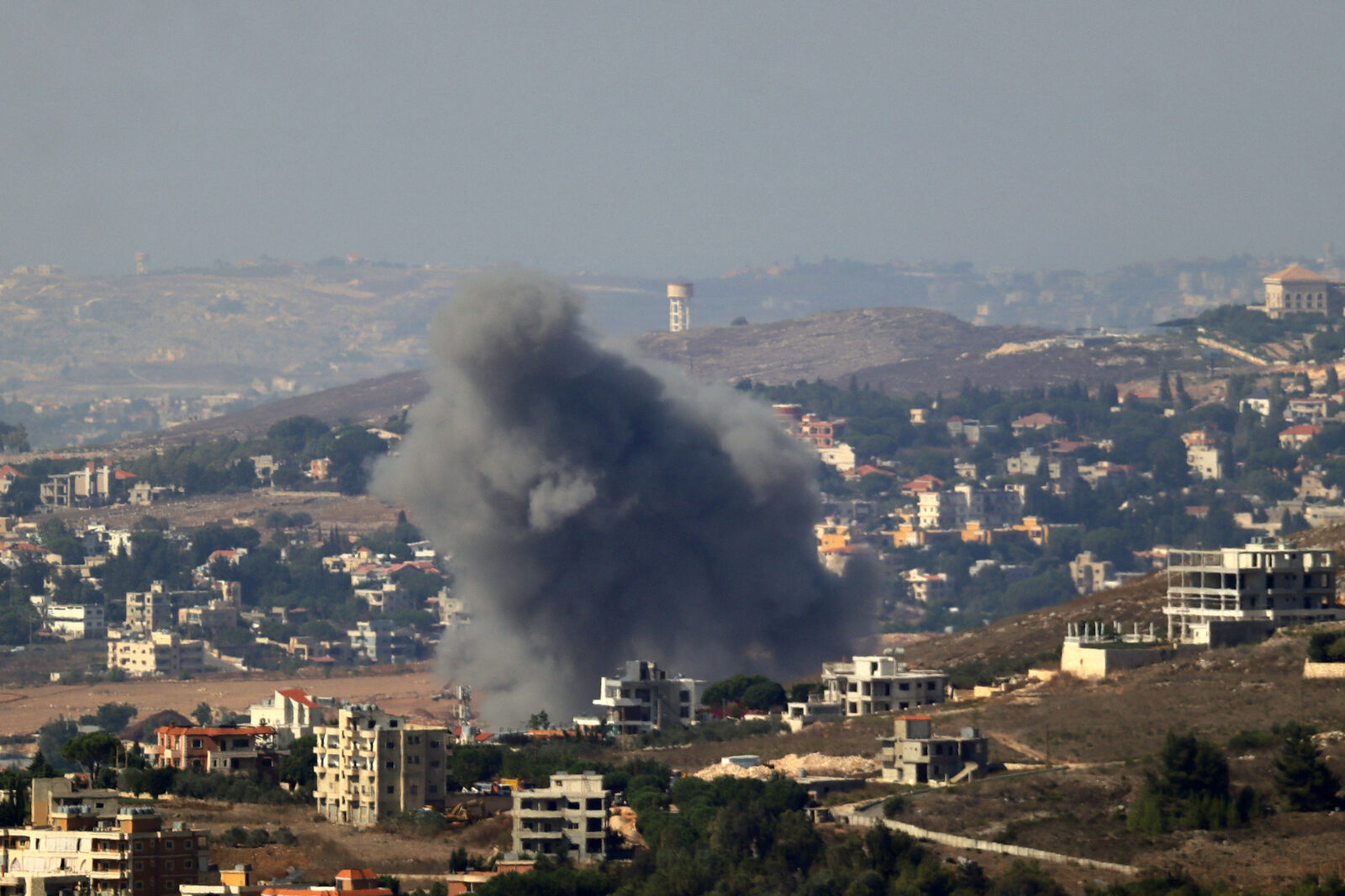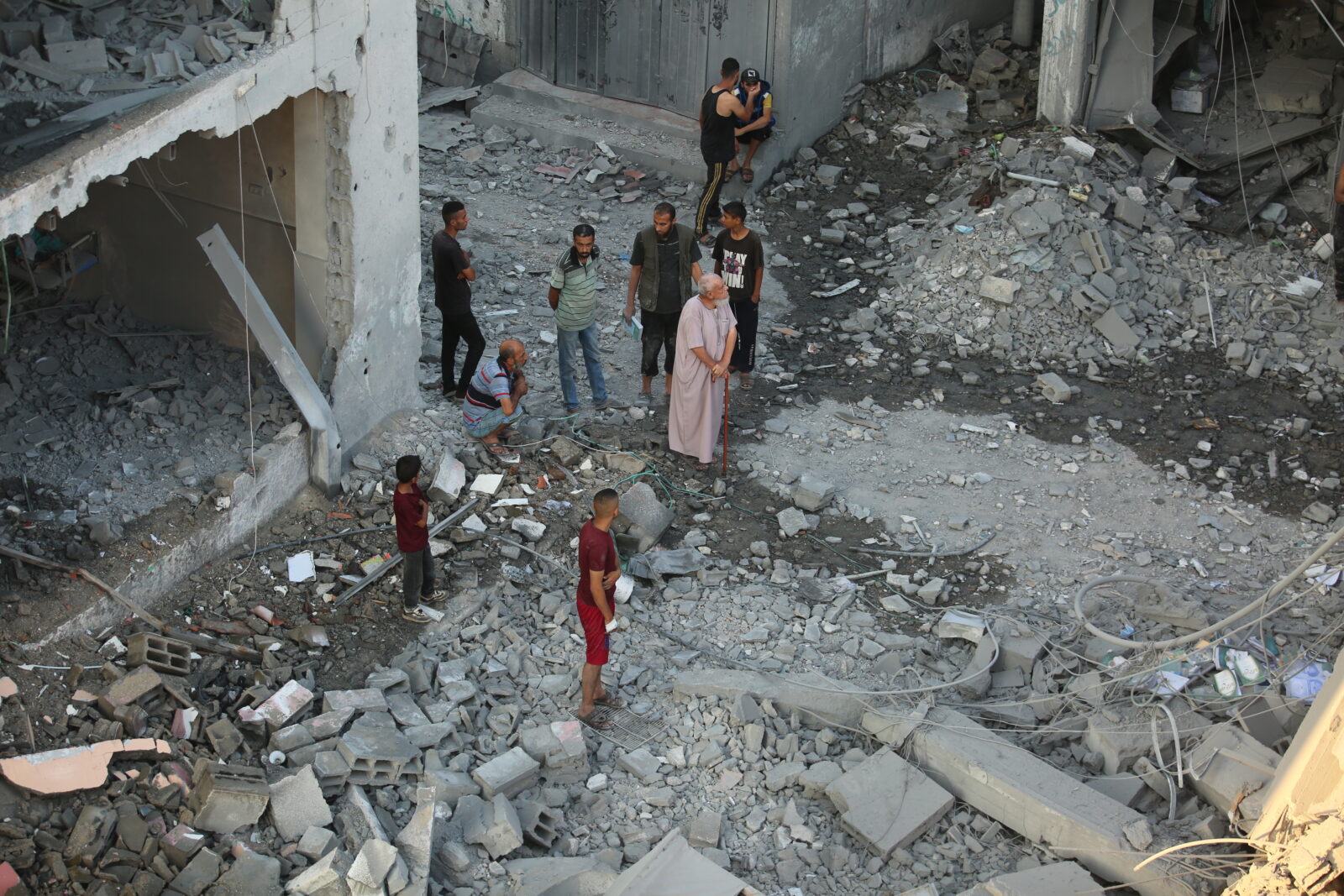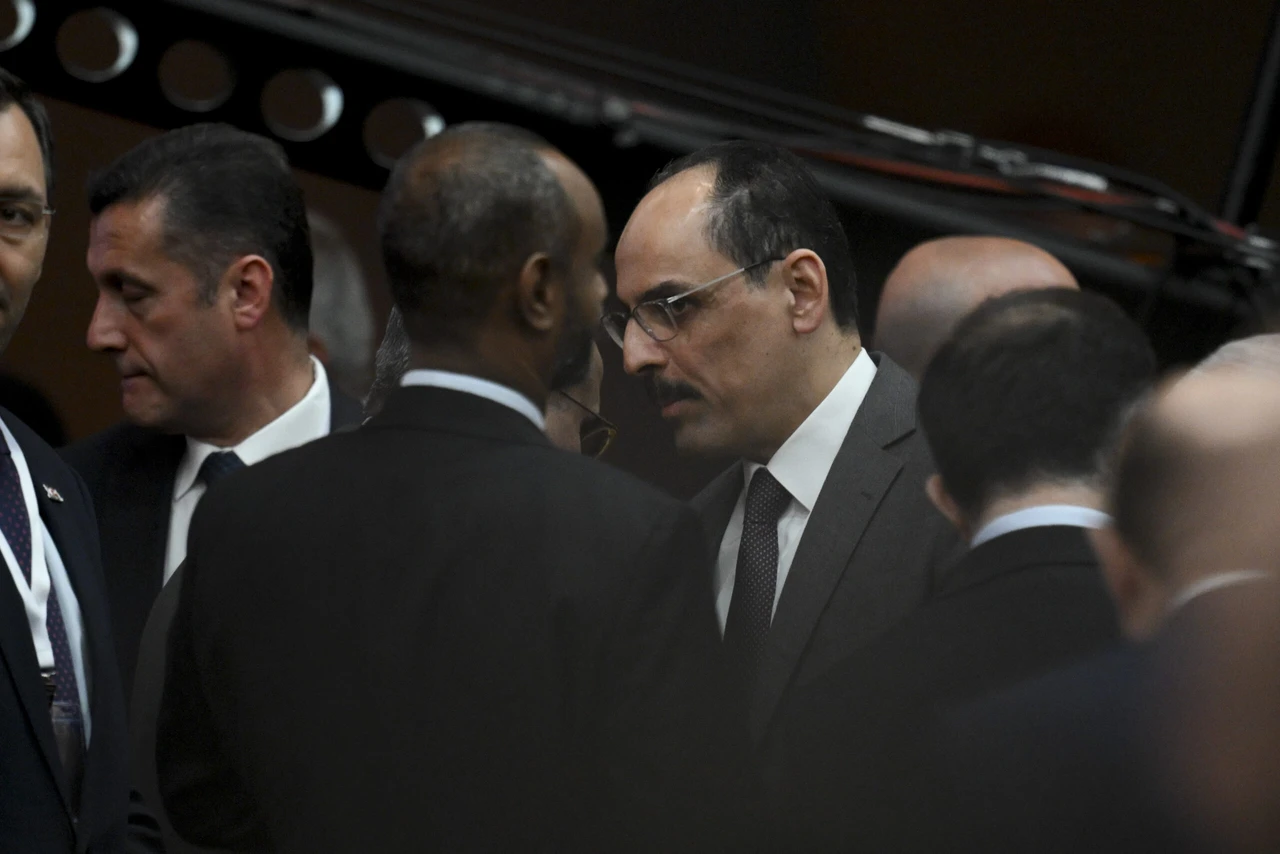UN peacekeepers alert of potential ‘catastrophic’ regional conflict
 Israel demolished the 12-storey Hanadi Tower, where civilians live in western Gaza, with an airstrike, Gaza Strip, May 12, 2021 (AA Photo)
Israel demolished the 12-storey Hanadi Tower, where civilians live in western Gaza, with an airstrike, Gaza Strip, May 12, 2021 (AA Photo)
U.N. peacekeepers in Lebanon warned Saturday of a potential “catastrophic” regional conflict as Israeli forces engaged in battles with Hezbollah and Hamas.
Israeli military actions have sparked fierce diplomatic backlash following incidents in southern Lebanon that resulted in injuries to five U.N. Blue Helmets. The Lebanese health ministry reported that Israeli airstrikes on two villages near Beirut claimed nine lives.
Earlier, Israel urged residents of southern Lebanon to refrain from returning home amid ongoing hostilities with Hezbollah, which have left over 1,200 people dead and forced more than a million to flee since September 23.
Israeli military spokesman Avichay Adraee cautioned on X, “For your own protection, do not return to your homes until further notice… Anyone who goes south may put his life at risk.”
Hezbollah responded by launching missiles into northern Israel, triggering air raid sirens. The Israeli military confirmed it intercepted one projectile.
UNIFIL spokesman Andrea Tenenti expressed concern that escalating Israeli actions against Hezbollah could spiral into a broader conflict with severe consequences for all involved.
He noted that five peacekeepers were injured in just two days of fighting in southern Lebanon and reported significant damage to U.N. positions.
As Israel prepares for Yom Kippur, markets closed and public transportation halted across the country, with observant Jews engaged in fasting and prayer.
Following the Yom Kippur holiday, attention is expected to shift back to Israel’s anticipated response to Iran, which launched approximately 200 missiles at Israel on October 1. The situation intensified after Israel began airstrikes on Gaza in retaliation for attacks by Iran-backed Hamas militants on October 7.

Criticism over attacks on peacekeepers
On Friday, Israel faced widespread condemnation from the U.N. and Western allies after a hit by Israeli forces on a U.N. peacekeeping position in Lebanon. Two Sri Lankan peacekeepers were injured in the incident, marking the second such occurrence within 48 hours.
Israel’s military stated its soldiers responded to an “immediate threat” near a UNIFIL base in Naqura, pledging a “thorough review” of the incident.
Irish military chief of staff Sean Clancy asserted the action was “not an accidental act,” while French President Emmanuel Macron suggested that peacekeepers had been “deliberately targeted.” Both Ireland and France are significant contributors to UNIFIL, where peacekeepers are on the front lines of the Israel-Hezbollah conflict.
Despite ongoing efforts to negotiate a ceasefire, Lebanese Prime Minister Najib Mikati announced plans to request a new U.N. Security Council resolution for a “full and immediate ceasefire.”
The Lebanese military reported Friday that an Israeli strike on one of its positions in southern Lebanon resulted in the deaths of two soldiers. Iranian Parliament Speaker Mohammad Bagher Ghalibaf showed solidarity with Hezbollah by visiting the site of a deadly Israeli strike earlier this week.
A source close to Hezbollah indicated the strike targeted the group’s security chief, Wafiq Safa, although neither Hezbollah nor Israel confirmed this claim. Ghalibaf’s visit signals Tehran’s defiance amid Israel’s promise to respond to Iran’s recent attacks.
Israeli Defence Minister Yoav Gallant has vowed that the response will be “deadly, precise, and surprising.” Meanwhile, the United States is advocating for a “proportionate” response to prevent escalation into a wider conflict, with President Joe Biden advising Israel against targeting Iranian nuclear sites or energy infrastructure.

Death toll in Gaza rises
In the wake of the October 7 attacks, Iran-backed Hezbollah began firing on Israel in support of Hamas, resulting in 1,206 deaths in Israel, primarily civilians, according to an AFP tally based on official figures, including hostages killed in captivity.
Israel’s military campaign in Gaza has inflicted devastating casualties, with health ministry reporting at least 42,175 deaths, the majority of whom are civilians.
Israeli attacks continue, particularly around Jabalia in northern Gaza, exacerbating the humanitarian crisis affecting hundreds of thousands trapped there, according to the U.N. agency for Palestinian refugees.
Meanwhile, Adraee issued another evacuation warning Saturday for areas near Jabalia, declaring them “dangerous combat zones” and urging residents to move to designated humanitarian zones in southern Gaza. However, some residents expressed reluctance to comply due to the dangers involved.
“There is no safe place, neither in the south nor in the north — everyone is at risk of death,” said 27-year-old Gazan Sami Asliya, emphasizing the dire situation facing those caught in the conflict. On Friday, Gaza’s civil defense agency reported at least 30 fatalities from Israeli strikes, including on schools serving as shelters for displaced individuals.



